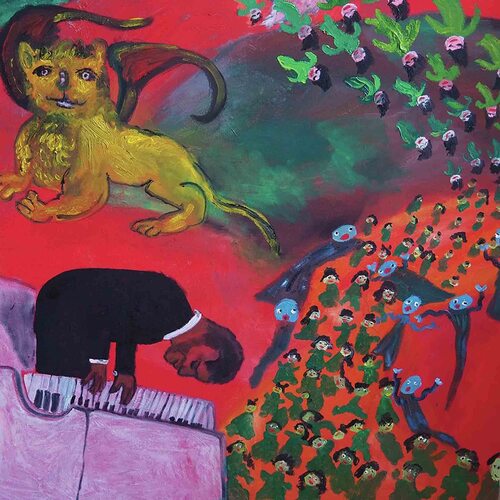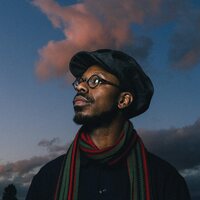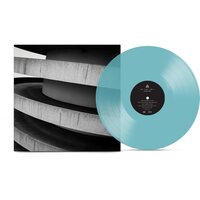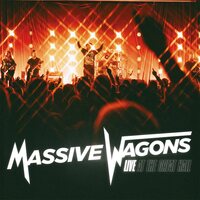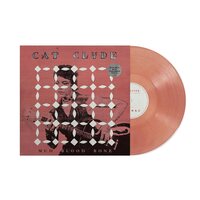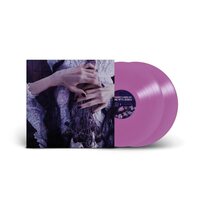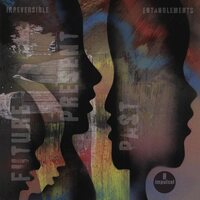Multi-instrumentalist, songwriter, and producer Mitch Davis steps out on his own with debut LP The Haunt, a singer-songwriter tour de force for which he wrote all the songs and played all the instruments, made in his home studio during the 2020 lockdown, with much of it recorded on equipment that he also built himself. The result is a uniquely personal statement brimming with color and optimism even as it ponders universal themes of introspection and loneliness-a record that could only have been made by Mitch Davis.Davis is a mainstay of the vibrant Montréal music scene, with a musical background encompassing everything from rock bands (Faith Healer) to avant-garde (Elle Barbara's Black Space) to jazz and hip-hop (Cadence Weapon). The Haunt is a synthesis of his many musical interests, stretching back to his childhood when he played drums in the church band and saxophone in his school band (he plays both on The Haunt.) Though he's never had any formal musical training, Davis can't remember a time in which music wasn't a part of his life. When it came time to make his own record, Davis says: "I was always hoping I could find a way to blend everything together and get away with doing a bunch of different genres all at once, because I don't like dwelling on a certain sound."That is what he has accomplished with The Haunt, which is an accessible collection of songs blending jazz, funk, sunshine pop, rock, and a host of surprising sonic easter eggs into a record so seamlessly integrated it often feels like a full band effort. Yet everything you hear is a result of Davis hunkering down alone in his home studio in the garment manufacturing district of Montréal while the city was under a strict curfew-midnight to 5am were his working hours-funneling all his creative energy into the music. He mostly wrote the songs as he went along, then tinkered with them until he was satisfied. "I was obsessed beyond belief," Davis says. "I would listen to it all day, every day until I didn't hear anything I'd done to that point and would only hear what the next thing should be." Davis isn't just an in-demand musical player in the Montreal scene-he's also a gearhead who is often tapped to fix his peers' synths and amps. Just like Davis doesn't have any formal musical training, he also never formally studied electronics, and his interest in building his own gear came about more organically. "I mostly just couldn't afford the gear that's as good as I could make," he says. One piece of self-built equipment he used for The Haunt is a boutique analog compressor called the Mitch Davis Compressor (MDC.) He's sold it to about 20 people in his community, but it will become available commercially soon as well.Despite so much going on behind the scenes, nothing about The Haunt sounds overworked. A breezy, upbeat listen, it's very much in tune with the spirit of 70s pop that Davis loves for the way it strikes a balance between musicality and catchiness, complexity and brevity. These are composed, layered songs made with care, but also made to make you smile. Not only fun for the listener, The Haunt sounds like it was fun to make-and it was. "As soon as I start working on something, I don't get tired. I can't," says Davis. "It's like I get drunk on the music or something." Yet the record is also personal and deeply soulful, a quality that might come from Davis' tendency to "do the vocals instantly, while it's super bare bones so I'm not trying to recreate the emotion later."Much of The Haunt is very keys-driven-the title track, which closes out the record, is an instrumental piano piece that Davis had kicking around for a while before figuring out what to do with it-and it's full of warm retro sounds like rhodes, clavinet, and synth. But it's also a record full of playfully modern moments that surprise and delight, like the unexpected chiptune breakdown near the end of "Let it Die," a cool contrast to the song's funky marching bass line and lyrics about deciding to give up on a relationship. The baroquely orchestrated "Hope That" achieves a unique interplay between a basic drum machine backbeat and the more acoustic instruments and some lovely synthesized strings. "My City Life" is the album's centerpiece, a soulful ballad about feeling lost in the big city for which Davis drew on his own experiences moving to Montréal from a town of 3,000. The song was written in a single sitting, which is unusual for the songwriter and speaks to the song's intimacy and rawness. Though it begins as an intimate piano ballad, it soon shifts into smooth and catchy soft rock, becoming a lyrical tale of loneliness that musically reaches for the stars-a song emblematic of the kaleidoscopic talents of Mitch Davis that are on full display on The Haunt.
Release date:
April 29, 2022
Label:
Install our app to receive notifications when new upcoming releases are added.

Recommended equipment and accessories
-

Cartridges - Top Picks
A selection of turnatble cartridges that provide great performance and sound quality
-
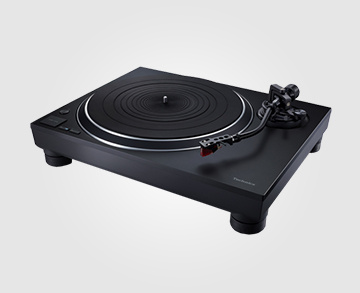
Technics SL-1500C Turntable
Features a direct-drive motor, a high-precision tonearm, and a premium MM cartridge, delivering exceptional sound quality
-
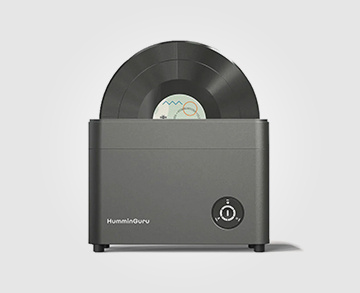
HumminGuru: Ultrasonic Vinyl Record Cleaner
Advanced ultrasonic technology with customizable cleaning cycles and a large tank capacity to thoroughly remove dust, dirt, and contaminants
-

Edifier R1280DB Powered Speakers
Combining classic design with modern Bluetooth connectivity, built-in amplification and versatile inputs, these speakers deliver rich, balanced sound.
-

Pro-Ject Phono Box DC Pre-Amp
Compact, high-performance phono preamplifier for both MM and MC cartridges, delivering a clean, detailed signal with minimal noise.
Featured Upcoming Vinyl
-

Quiet Light Blue Angel Sparkling Silver 1+2 (Marble Green & Blue) [2xLP]
True Panther/Virgin
April 24, 2026 -

Kal-El Astral Voyager Vol. 2
Blues Funeral Recordings
March 20, 2026 -

Pictish Trail Life Slime (Toxic Lagoon)
Fire Records
April 24, 2026 -

Shabaka Of The Earth
Shabaka Records
March 27, 2026 -

Held. Grey (Cyan)
Mnrk Heavy
May 15, 2026 -

Massive Wagons Live at the Great Hall
Earache Records
March 27, 2026 -

Shoreline Is This The Low Point Or The Moment After?
Pure Noise Records
March 13, 2026 -

Cat Clyde Mud Blood Bone (Eco-Mix Red)
Concord Records
March 13, 2026 -

The Saddest Landscape Alone With Heaven [2xLP]
Iodine Recordings
May 15, 2026 -

Denzel Curry & The Scythe Strictly 4 The Scythe (Transparent Violet)
Loma Vista Recordings
March 6, 2026 -

Hannah Lew Hannah Lew
Night School
April 17, 2026 -

Kashus Culpepper Act I (Clear/Translucent Red) [2xLP]
Big Loud Records
March 6, 2026 -

Irreversible Entanglements Future Present Past
Impulse
March 27, 2026 -

Close Enemies Close Enemies
The Label Group
March 13, 2026
